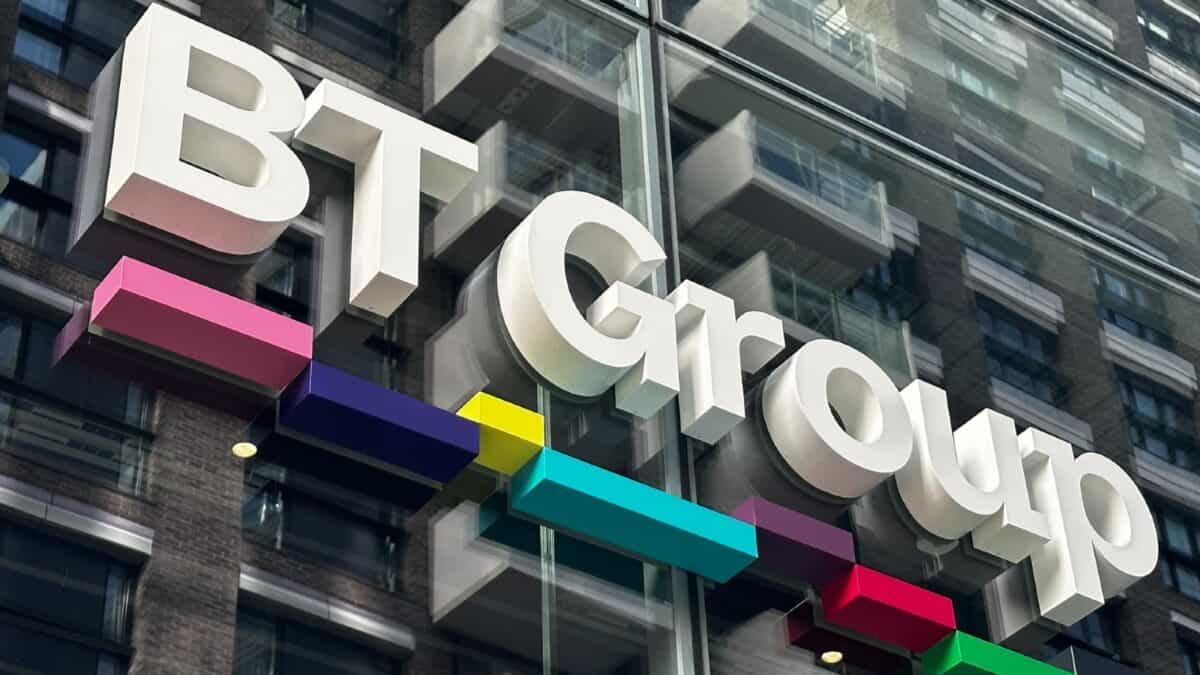BT Group (LSE: BT.A) posted a 3.9% dividend rise on 16 May, and the share price jumped 10% in early trading.
Speaking of the year ended 31 March, CEO Allison Kirkby told us that BT’s progress “gives us the confidence to provide new guidance for significantly increased short term cash flow and sets out a path to more than double our normalised free cash flow over the next five years.“
What does that do for my fear over the long-term dividend stability? It might consign it to the trash, that’s what.
The firm is also “exploring options to optimise our global business,” and focus on the UK. So we could see some disposals before too long.
Milestones
The update spoke of two key milestones that could materially change the cash flow outlook for the future. BT has passed peak capital expenditure on its full fibre broadband rollout. And it’s hit its £3bn cost savings target a year ahead of plan.
Kirkby said: “We’ve now reached the inflection point on our long-term strategy.” Could this also mark an inflection point for the BT share price? I think it just might.
It would mark a welcome change of direction for a stock that’s lost 40% of its value in the past five years.
Elephant
I can’t ignore the big thing in the room though. Debt. BT’s net debt figure has risen again, to a whopping £19.5bn, from £18.9bn a year previously.
That’s not extra borrowing though, as the firm put the increase down to scheduled pension scheme contributions of £0.8bn.
Oh yes, the pension fund deficit. That’s up from £3.1bn to £4.8bn. Together, they add up to £24.3bn. And BT has a market-cap of just £11.2bn, Gulp!
Time to buy?
It’s all down to valuation, for me. And on basic measures, BT looks cheap. Forecasts put the price-to-earnings (P/E) ratio down around seven, about half the FTSE 100 long-term average.
But we need to adjust for the debt. What might it could cost to buy the whole company, and pay off the debt and the pension deficit? Adding that up, I work out an adjusted P/E of around 22.
But that might still be reasonable for a telecoms leader that looks like it could have turned the corner to sustainable long-term earnings growth. And cash flow prospects make the dividend look a bit safer.
Verdict
For this year, BT expects adjusted revenue growth of 0-1%, which isn’t brilliant. But expected EBITDA of around £8.2bn, with £1.5bn free cash flow, sounds like good news for dividend investors.
And the board hopes to reach free cash flow of around £2bn in 2027, and £3bn by the end of the decade.
Whether to buy? Those thinking about it need to balance this apparently strong progress on one hand. And set it against that huge debt and high adjusted P/E on the other.
Me? I’m warming to the idea of just taking the 6.8% dividend yield and not thinking too hard about the rest.







